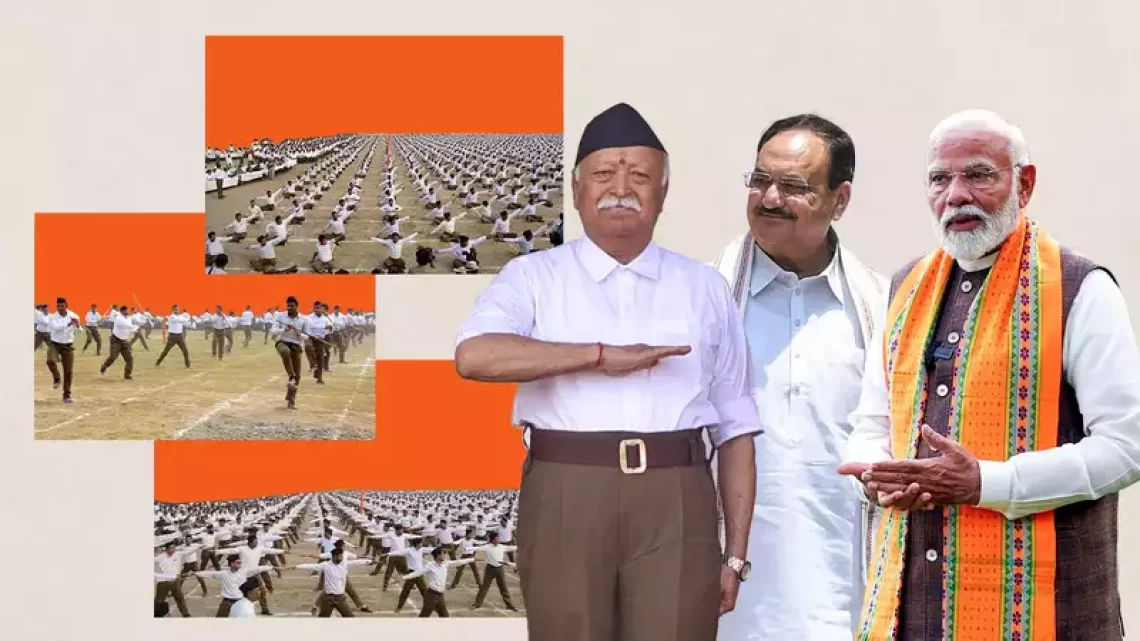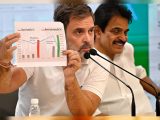
International Media Views Modi’s Election Setback as a Blow to His Image and Hindutva Agenda
June 7, 2024The 2024 Indian election results have been widely covered in international media, presenting a significant blow to Prime Minister Narendra Modi’s image and his Hindutva agenda while marking a resurgence for the opposition.
International coverage highlighted several key aspects of the outcome. Modi’s party lost its majority, and his Hindu nationalist agenda faced rejection from voters. While acknowledging Modi’s potential achievement as the second Prime Minister after Nehru to secure a third consecutive term, foreign news outlets also spotlighted the unexpected gains made by the opposition INDIA bloc.
The New York Times reported that the 2024 results shattered Modi’s “aura of invincibility,” forcing him to rely on coalition partners that do not share his Hindu nationalist agenda. In another piece titled “Indian Voters Have Finally Woken Up,” the paper described Modi as a diminished figure whose disappointing election showing could imperil his vision for an intolerant Hindu state. It added that Modi and the BJP had “fallen back to earth.”
The Washington Post criticized Modi’s emphasis on Hindu nationalism, noting that the construction of the Ram temple did not sway voters as expected. The Wall Street Journal described the results as “a rebuke” to PM Modi, highlighting economic rifts and challenging his perceived invincibility.
The Guardian reported that Modi lost his aura of invincibility, emphasizing that his reliance on coalition partners would likely make it harder for him to advance many of his more radical Hindu-first policies, particularly those involving citizenship registration and laws accused of discriminating against Muslims.
The BBC called the results a “setback” for Modi, hailing the outcome as a significant resurgence for the opposition INDIA alliance and Congress party leader Rahul Gandhi. The Associated Press described Modi as a “popular but polarizing leader” who resorted to anti-Muslim rhetoric, referring to Muslims as “infiltrators” and making claims about their population growth.
CNN noted that voters in the world’s largest democracy partially rejected Modi’s populist vision for a Hindu-first nation. Bloomberg emphasized that investors and governments mistakenly believed that one individual could single-handedly navigate India’s complexities.
The 2024 Indian election results have been widely covered in international media, presenting a significant blow to Prime Minister Narendra Modi’s image and his Hindutva agenda while marking a resurgence for the opposition.
International coverage highlighted several key aspects of the outcome. Modi’s party lost its majority, and his Hindu nationalist agenda faced rejection from voters. While acknowledging Modi’s potential achievement as the second Prime Minister after Nehru to secure a third consecutive term, foreign news outlets also spotlighted the unexpected gains made by the opposition INDIA bloc.
The New York Times reported that the 2024 results shattered Modi’s “aura of invincibility,” forcing him to rely on coalition partners that do not share his Hindu nationalist agenda. In another piece titled “Indian Voters Have Finally Woken Up,” the paper described Modi as a diminished figure whose disappointing election showing could imperil his vision for an intolerant Hindu state. It added that Modi and the BJP had “fallen back to earth.”
The Washington Post criticized Modi’s emphasis on Hindu nationalism, noting that the construction of the Ram temple did not sway voters as expected. The Wall Street Journal described the results as “a rebuke” to PM Modi, highlighting economic rifts and challenging his perceived invincibility.
The Guardian reported that Modi lost his aura of invincibility, emphasizing that his reliance on coalition partners would likely make it harder for him to advance many of his more radical Hindu-first policies, particularly those involving citizenship registration and laws accused of discriminating against Muslims.
The BBC called the results a “setback” for Modi, hailing the outcome as a significant resurgence for the opposition INDIA alliance and Congress party leader Rahul Gandhi. The Associated Press described Modi as a “popular but polarizing leader” who resorted to anti-Muslim rhetoric, referring to Muslims as “infiltrators” and making claims about their population growth.
CNN noted that voters in the world’s largest democracy partially rejected Modi’s populist vision for a Hindu-first nation. Bloomberg emphasized that investors and governments mistakenly believed that one individual could single-handedly navigate India’s complexities.

